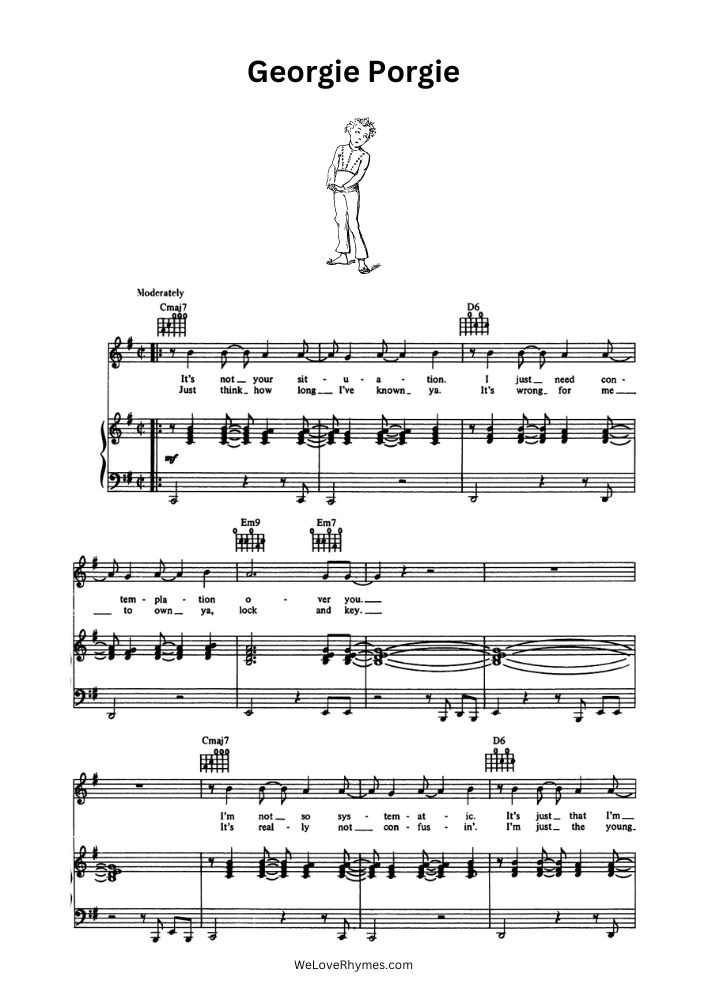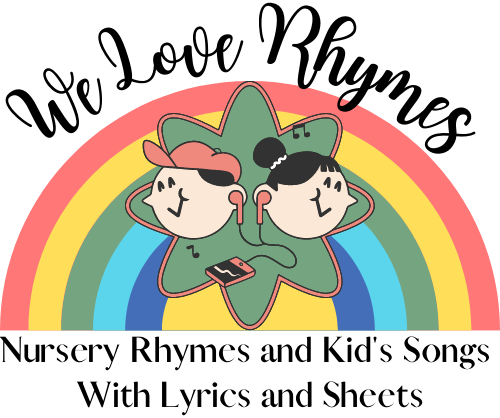Georgie Porgie is a traditional English nursery rhyme. Georgie Porgie was first mentioned in written form in The Kentish Coronal in 1841 where it was described as an “old ballad”.
Georgie Porgie’s origin is unclear and difficult to verify. Georgie Porgie or Rowley Powley is believed by some to be a historical figure, but there is no consensus about his identity. Andrew Lang believed George I to be the subject of the rhyme. Popular tradition gives Charles II the nod. According to one source, the rhyme refers to Georgie Villiers the 2nd, Duke of Buckingham (1628-1687) who was involved in numerous court intrigues. Due to his scandalous reputation, Parliament demanded Charles II to sever his relationship with Villiers . Still another source claims that this rhyme was a satire of George IV. Known as “Prinny ” before ascending the throne, this noble had a reputation for “amorous and amoral behavior. It is also possible that it is about no one in particular.
Georgie Porgie’s Dark Meaning
In present day society Georgie Porgie seems to be synonymous with bullying and sexual harassment. Numerous examples have been cited concerning six or seven year old males who have been suspended from school for kissing or touching female classmates. Georgie Porgie’s aggressive behavior is now being dealt with punitively. These “awkward expressions of pubescent sexuality” are considered offenses in the eyes of school officials and result in suspension. Once thought of as innocent sexual curiosity, today such actions are viewed as aggressive acts that females passively fall victim to and are helpless to prevent.
This type of modern response might seem a bit exaggerated; however, when we compare it with the responses of the girls in the original rhyme, there seems to be a similarity. Georgie Porgie’s victims simply cried and seemed powerless against his advances. Since the original rendition was thought to be a reference to royalty, maybe the girls who were subject to Georgie’s advances had no recourse; he was a member of the monarchy, after all. Centuries later, girls are still being sexually harassed by young boys and too many still respond passively. The difference today is that society is stepping in and saying that this type of action is not acceptable.
Overall, this rhyme seems to be a contradiction. Georgie is painfully becoming aware of his own sexuality. This is illustrated through his awkward advances that the girls seem to find repugnant. Yet, he seems to be afraid of the other boys, so he runs when they approach. Is he a bully or bothered by his own sexuality? He certainly doesn’t stay and talk about his conquests with the guys. Why don’t the other boys like him? Georgie may be a troubled lad. Another interesting issue is why don’t the girls fight back? They stand there passively and cry when Georgie steals a kiss. They are certainly appalled by his actions but do not retaliate.
Georgie Porgie Lyrics
Georgie Porgie, pudding and pie,
Kissed the girls and made them cry;
When the boys came out to play,
Georgie Porgie ran away.
Georgie Porgie Music Sheet




